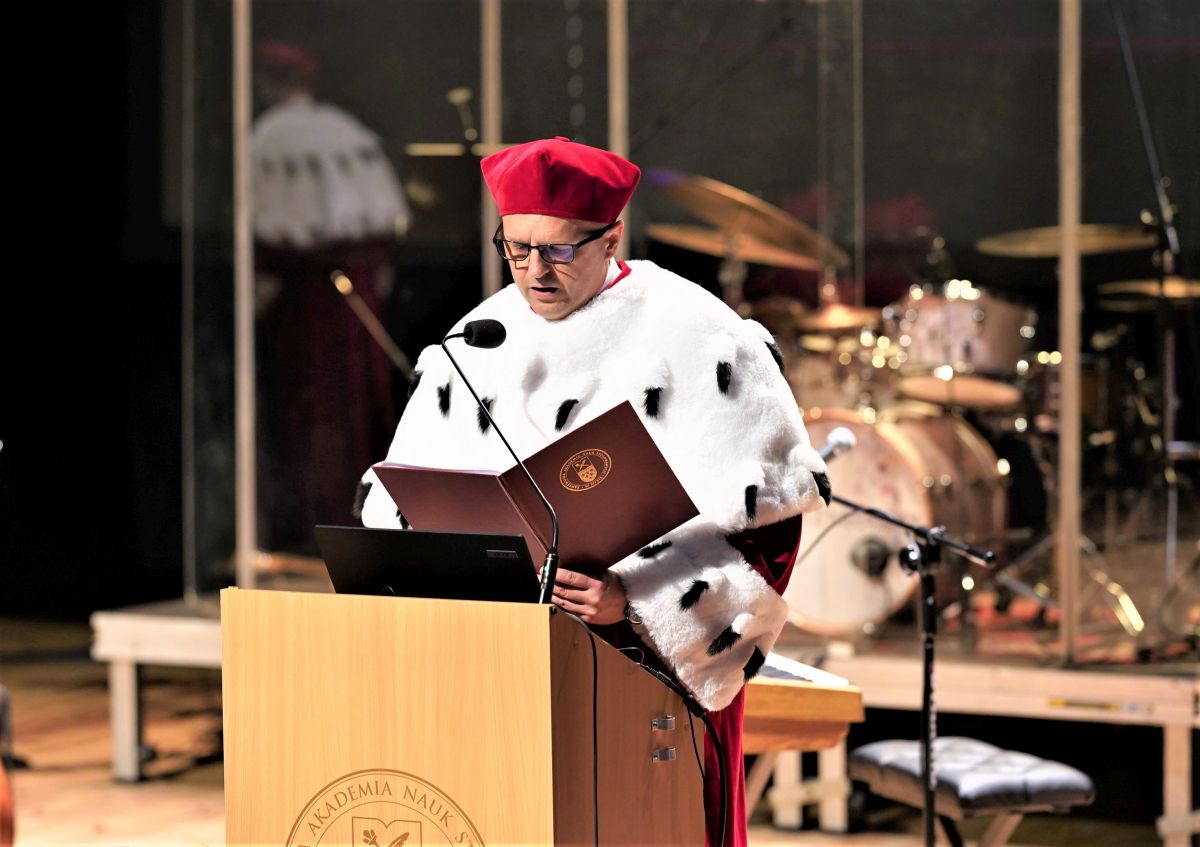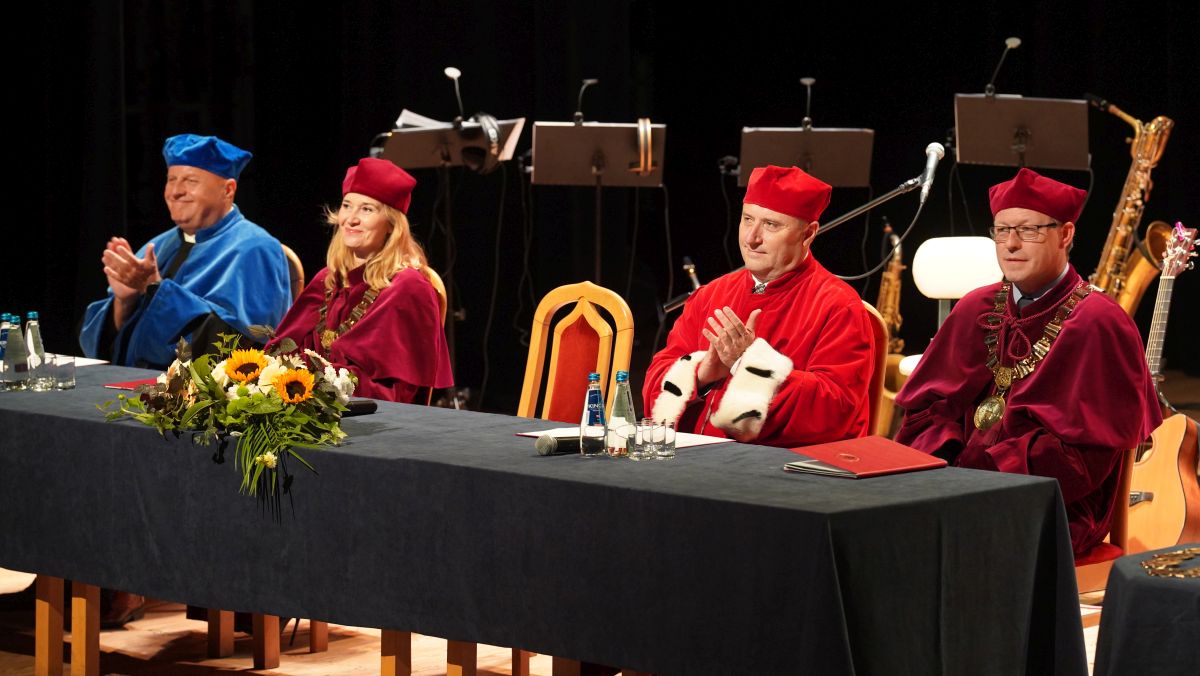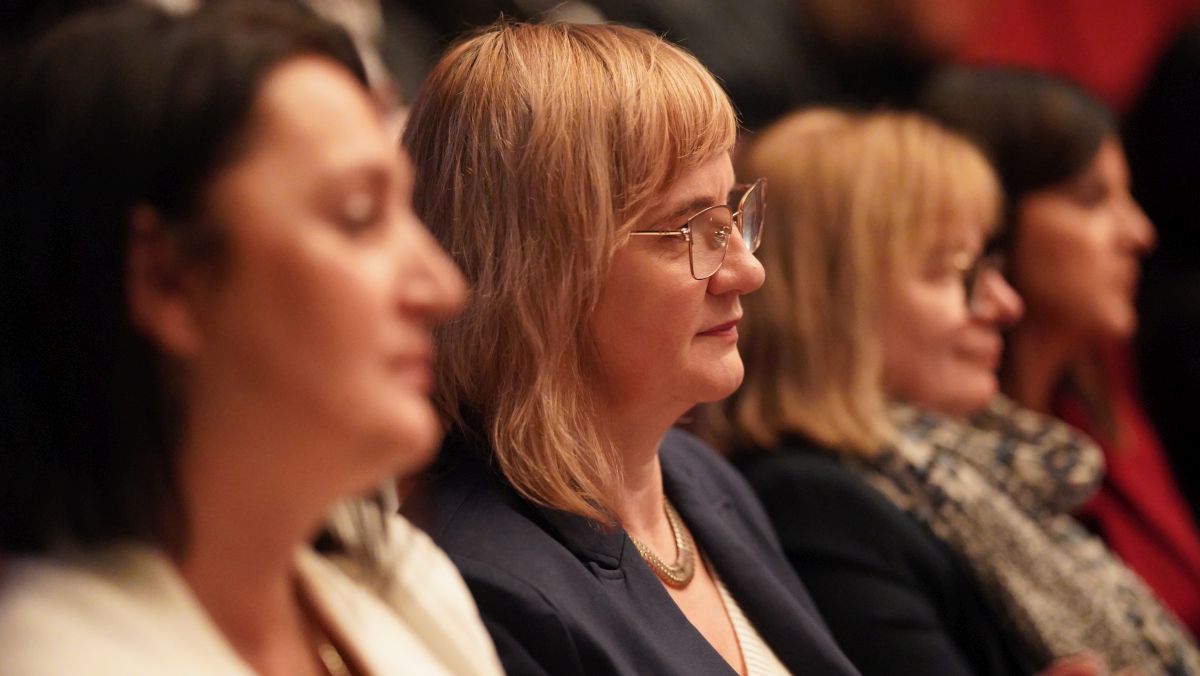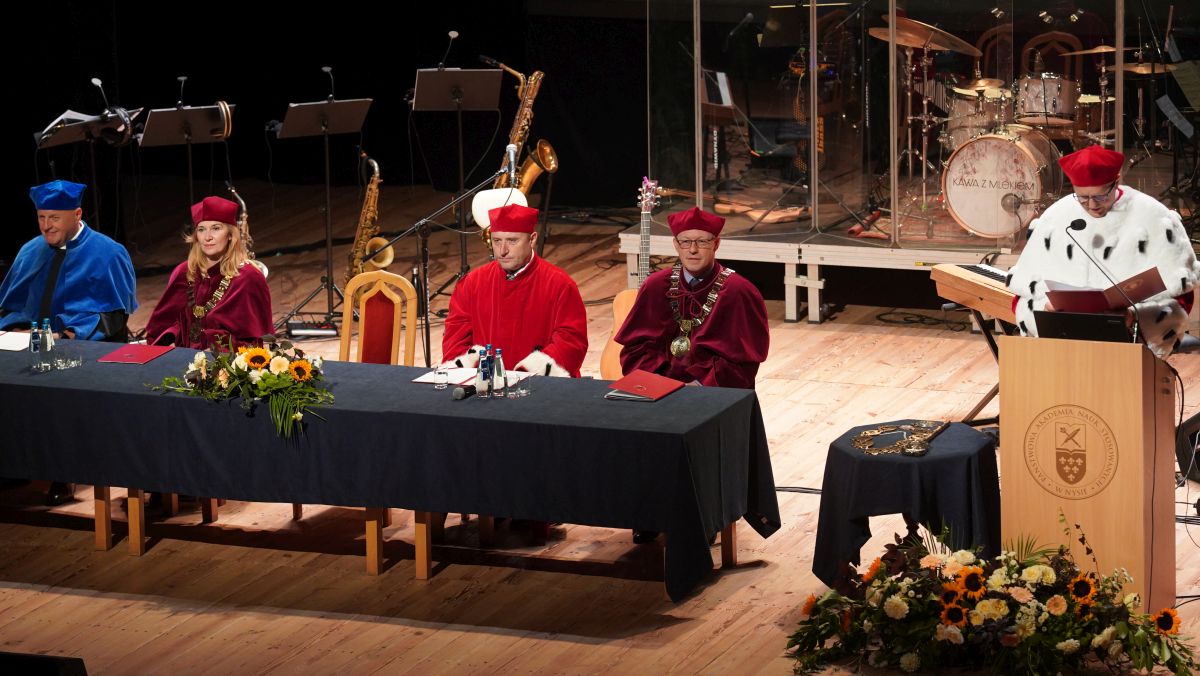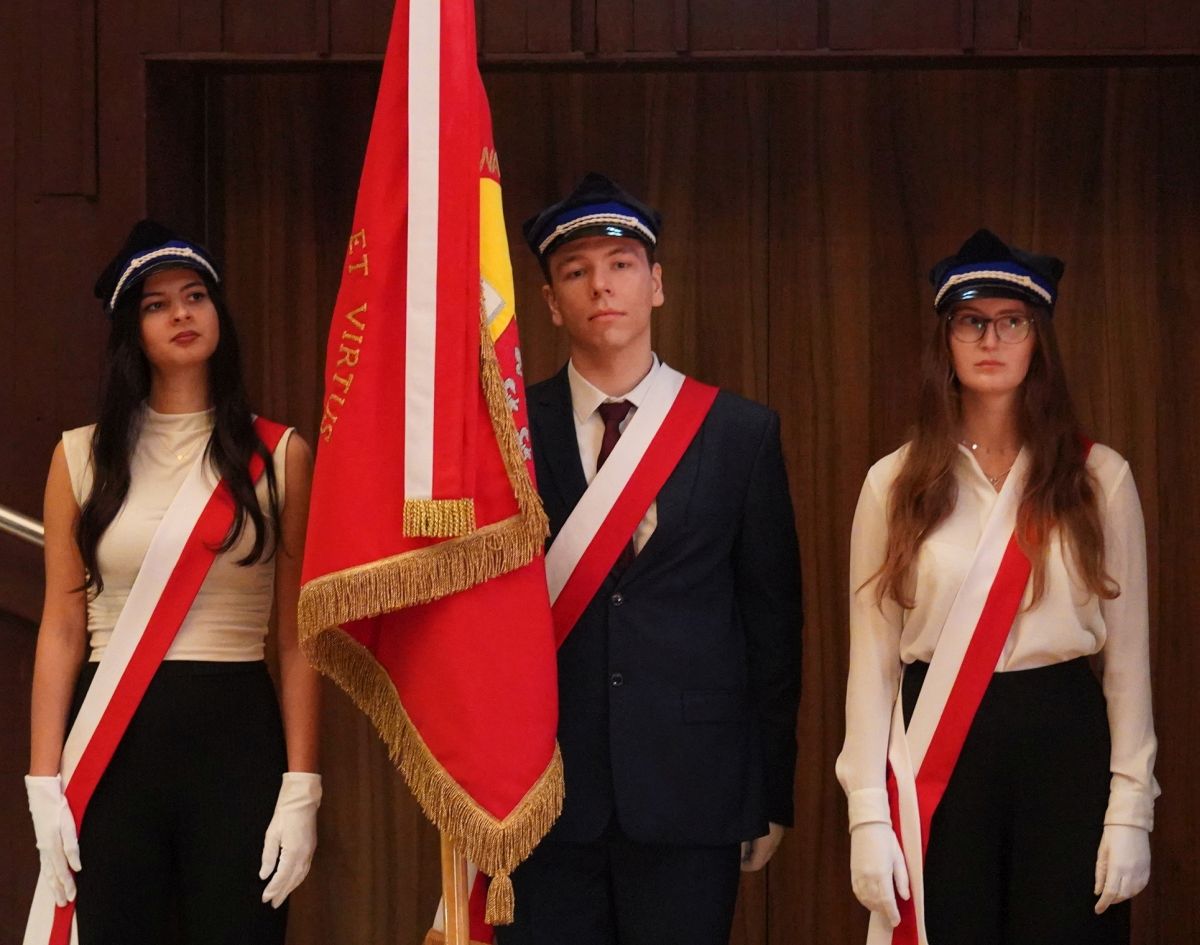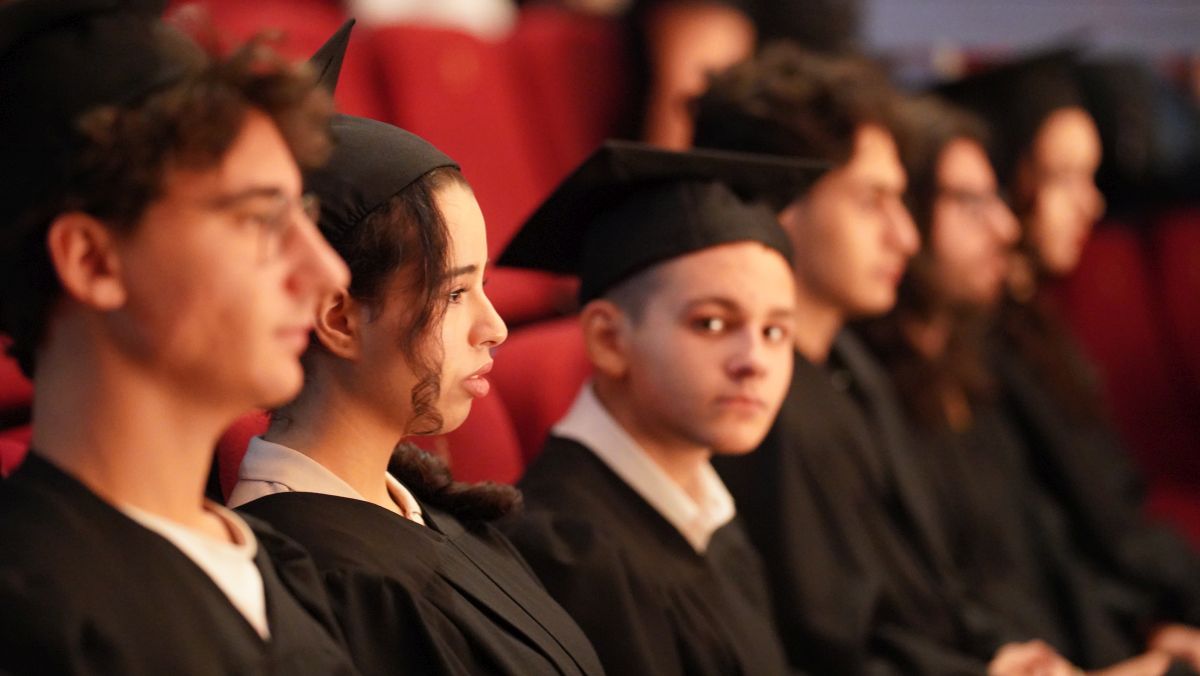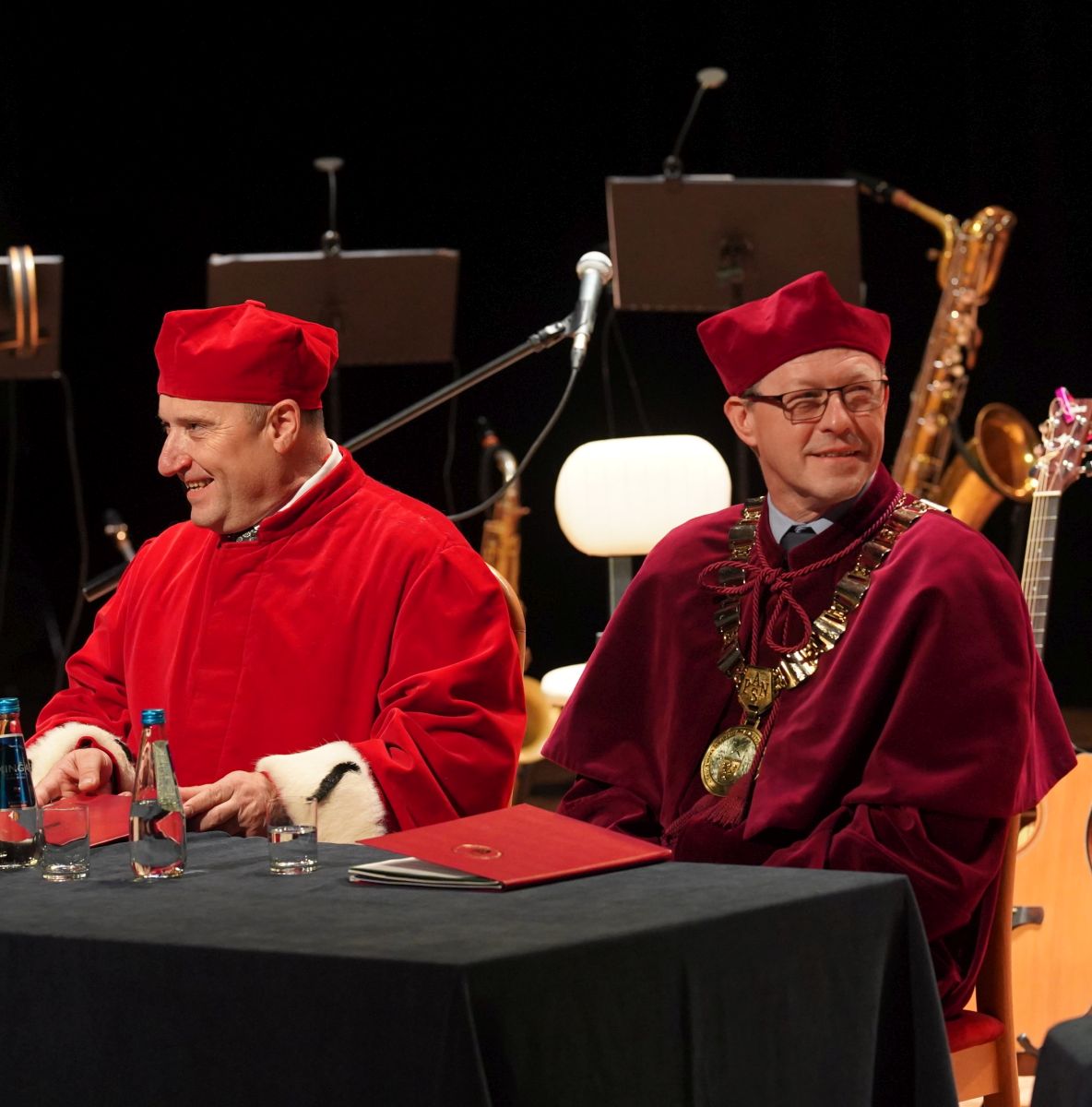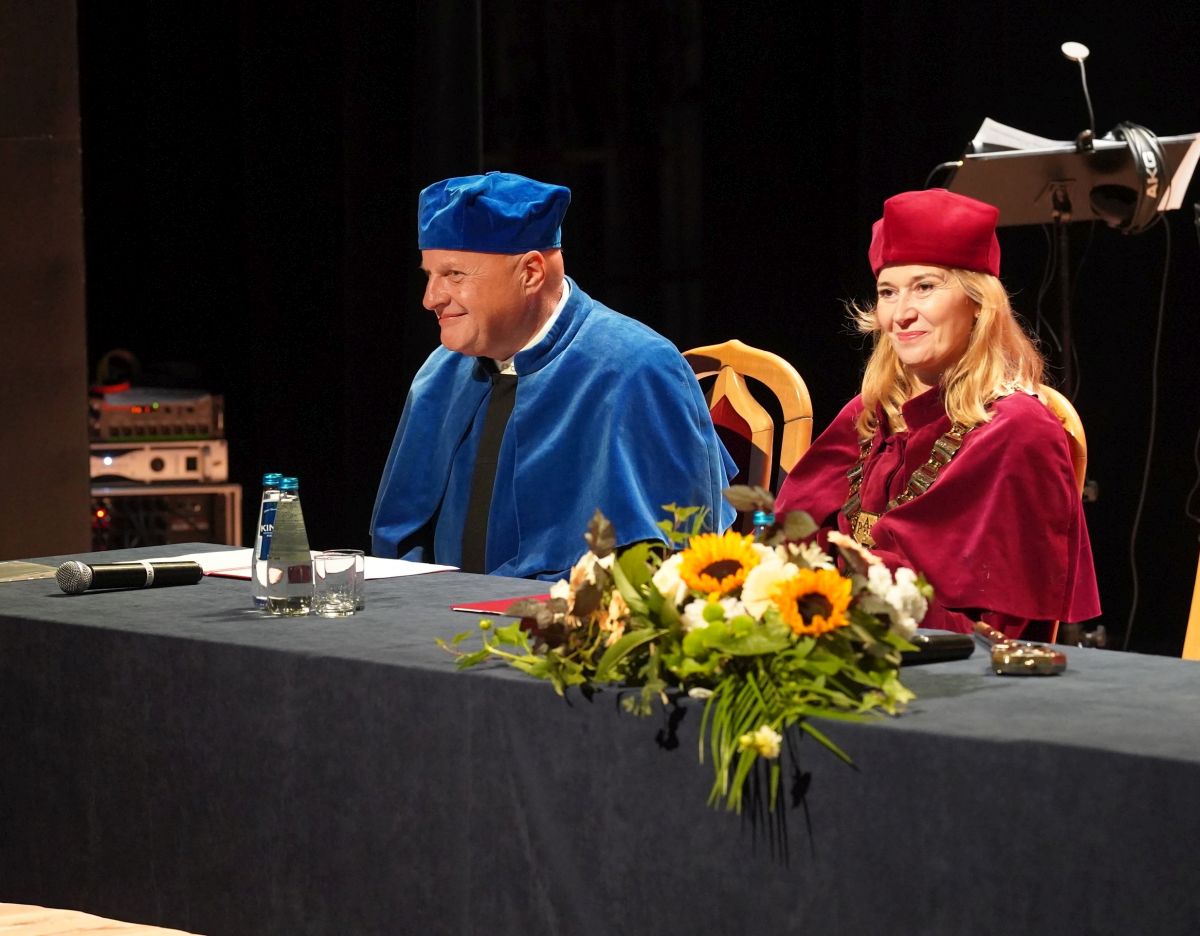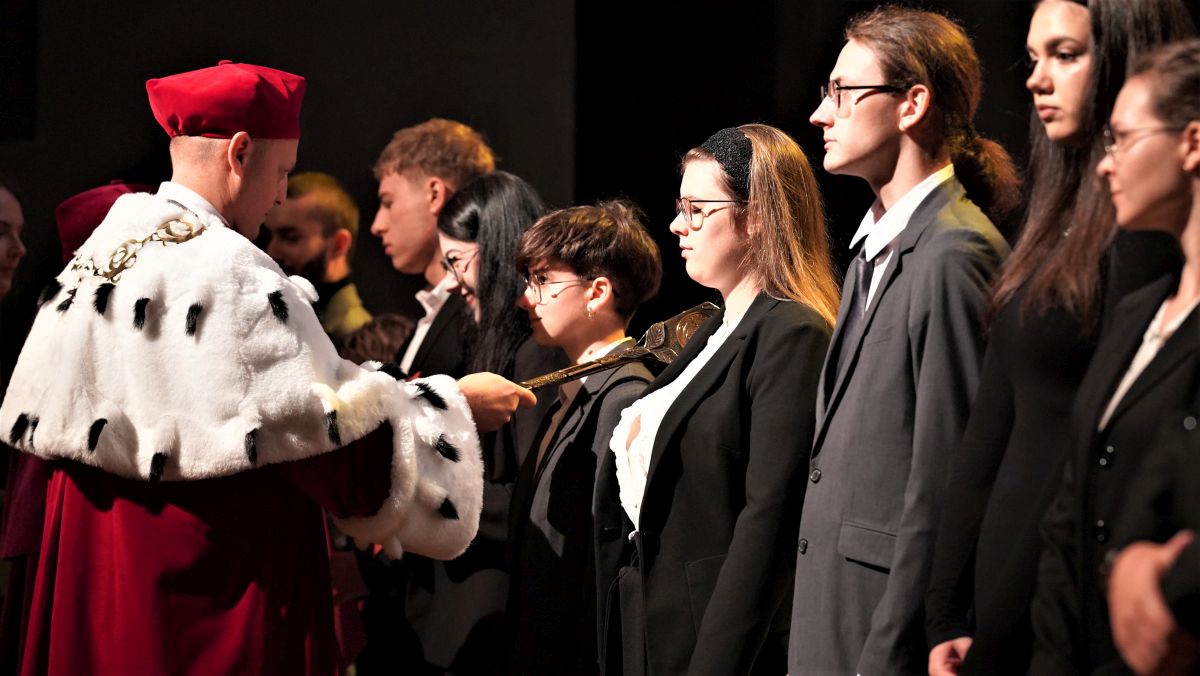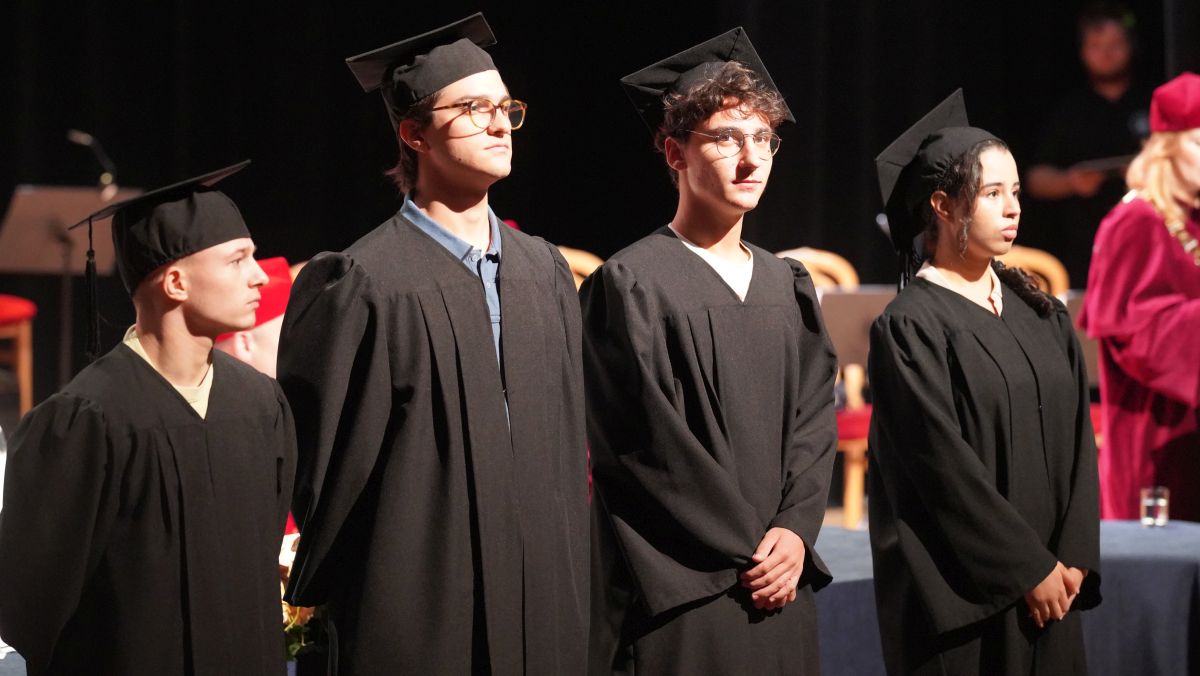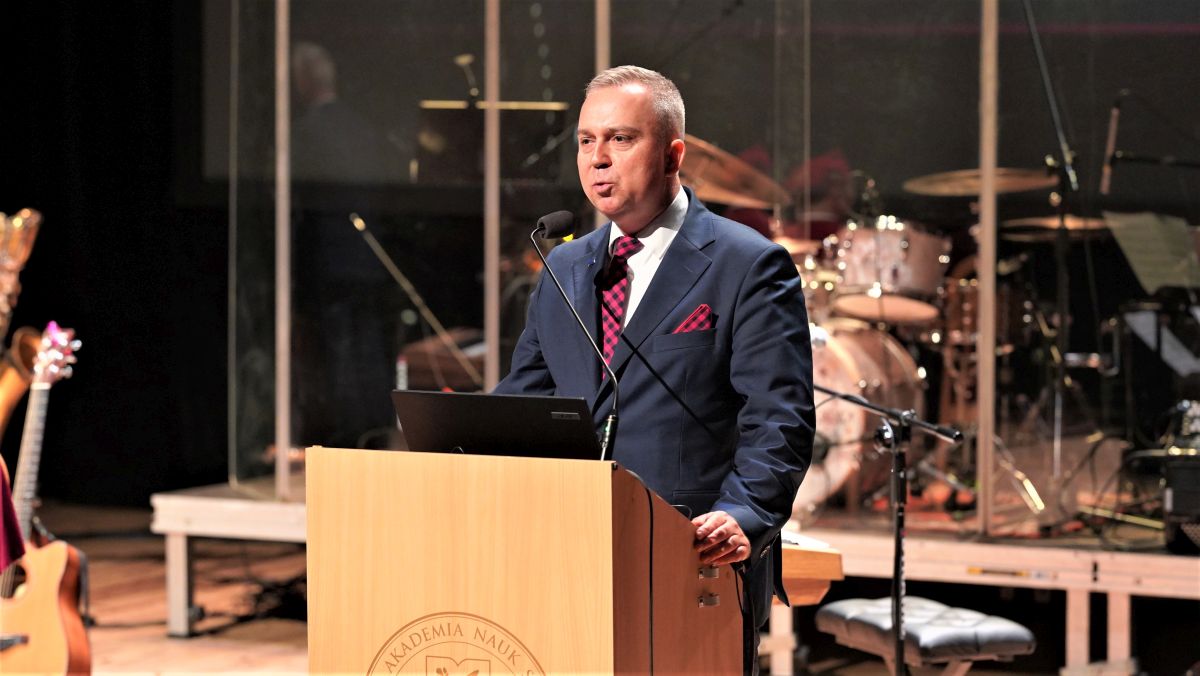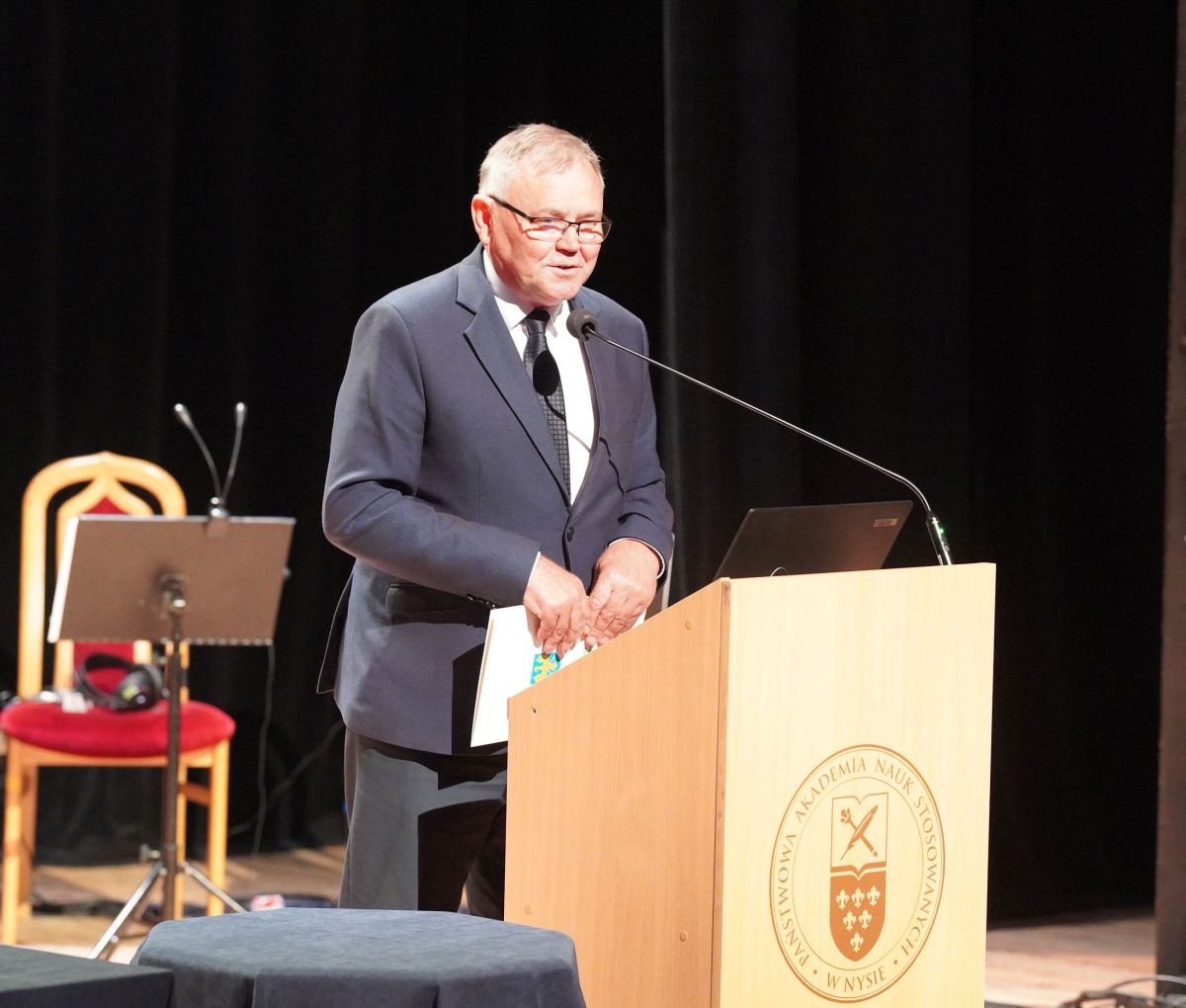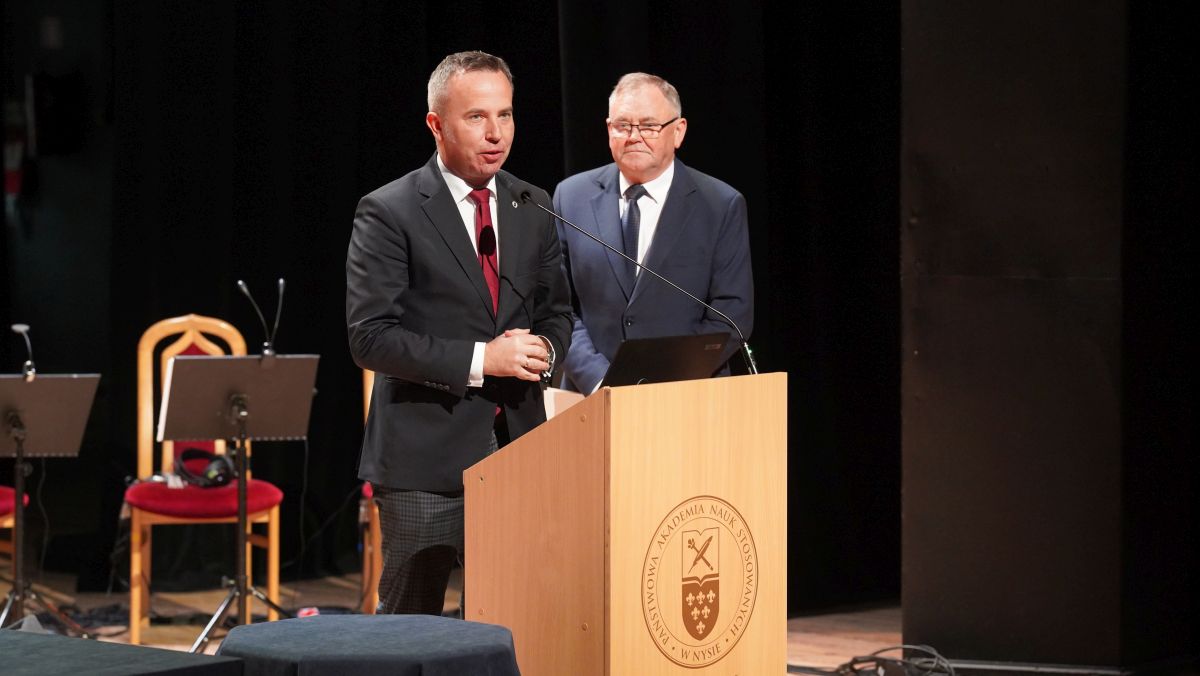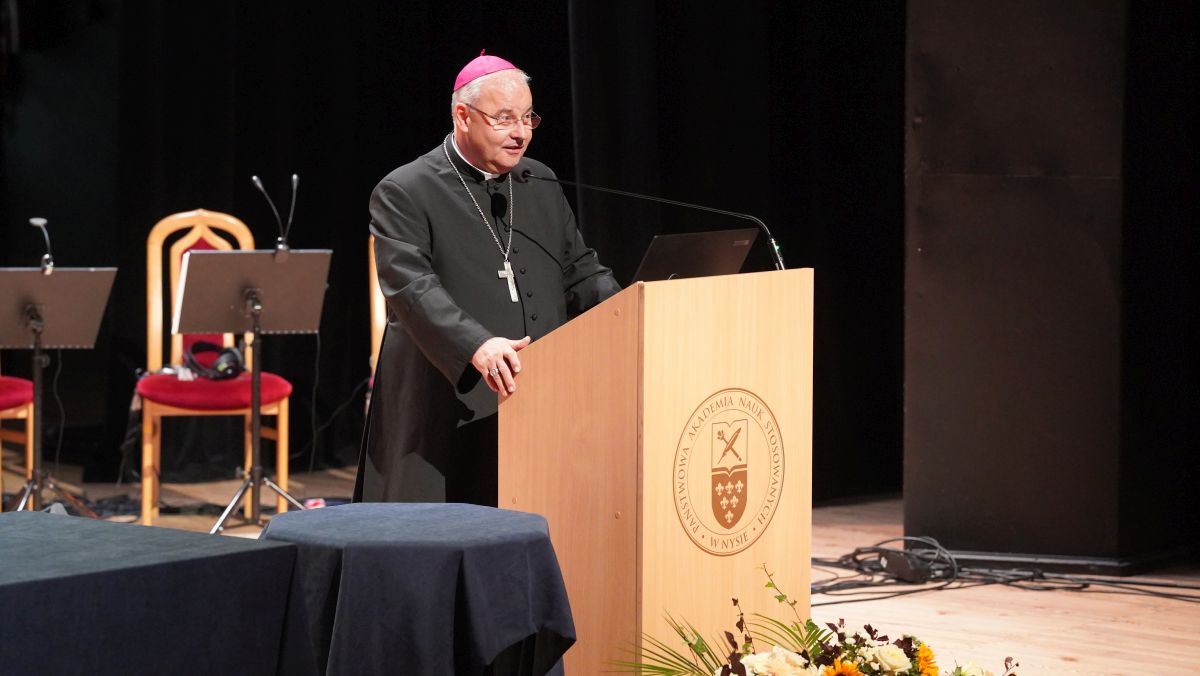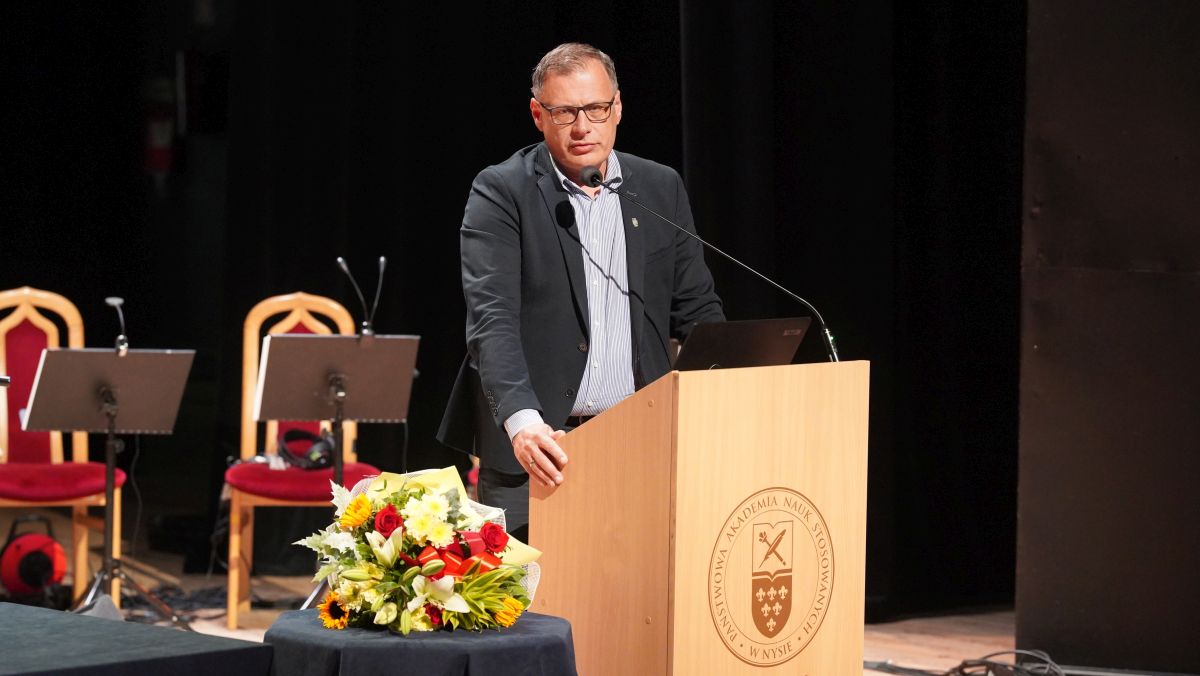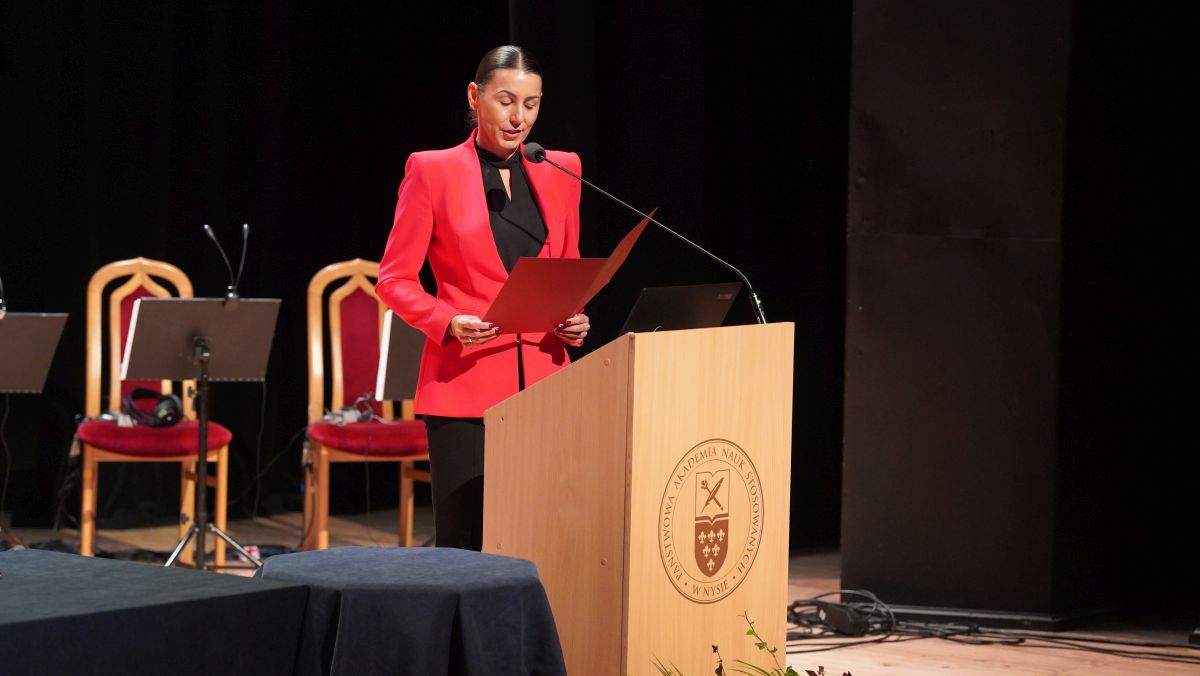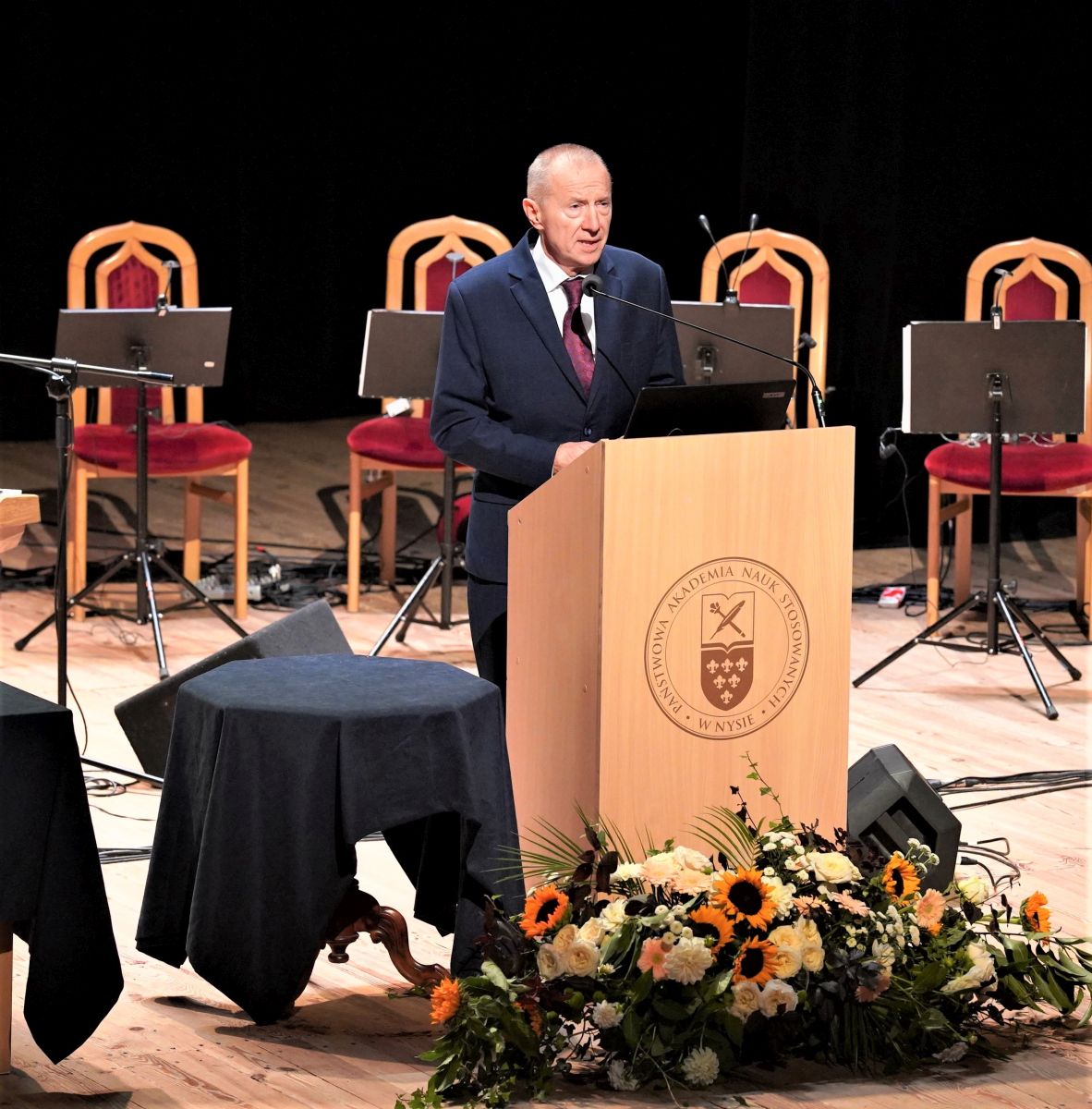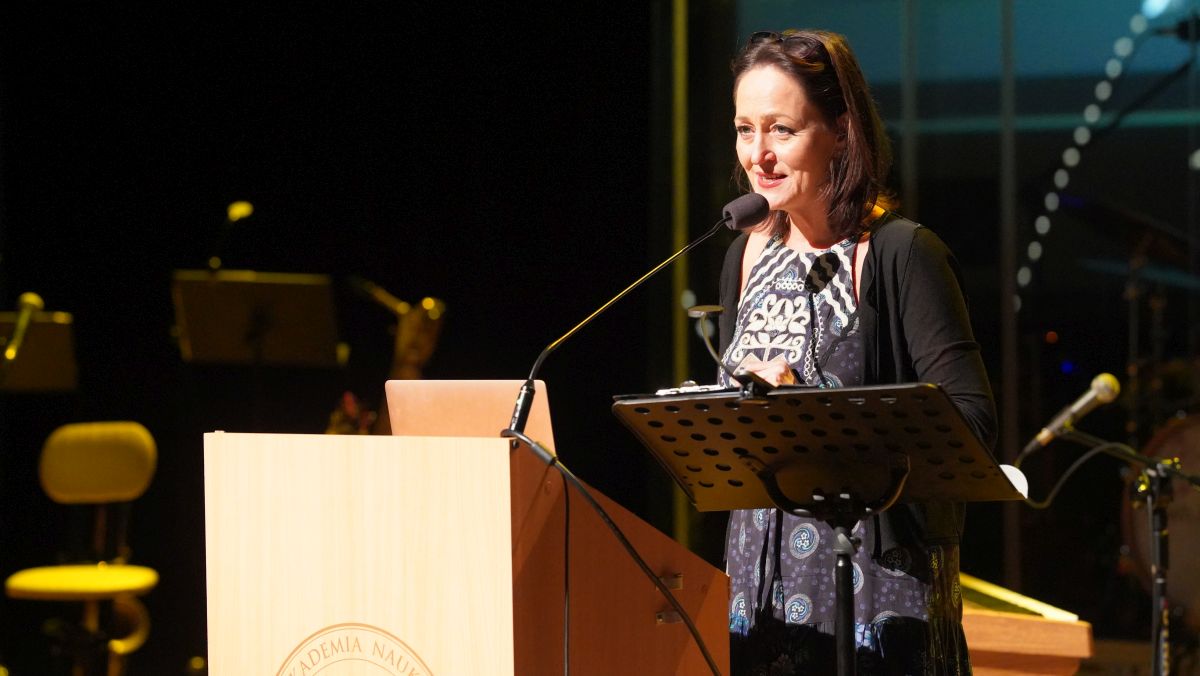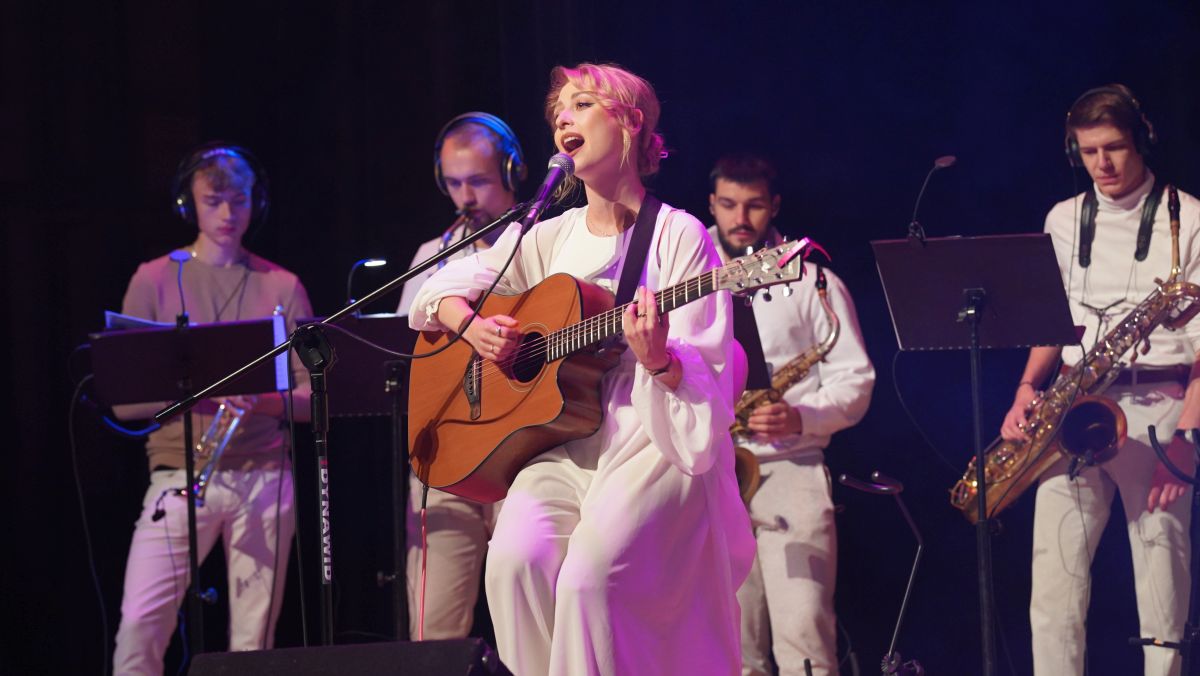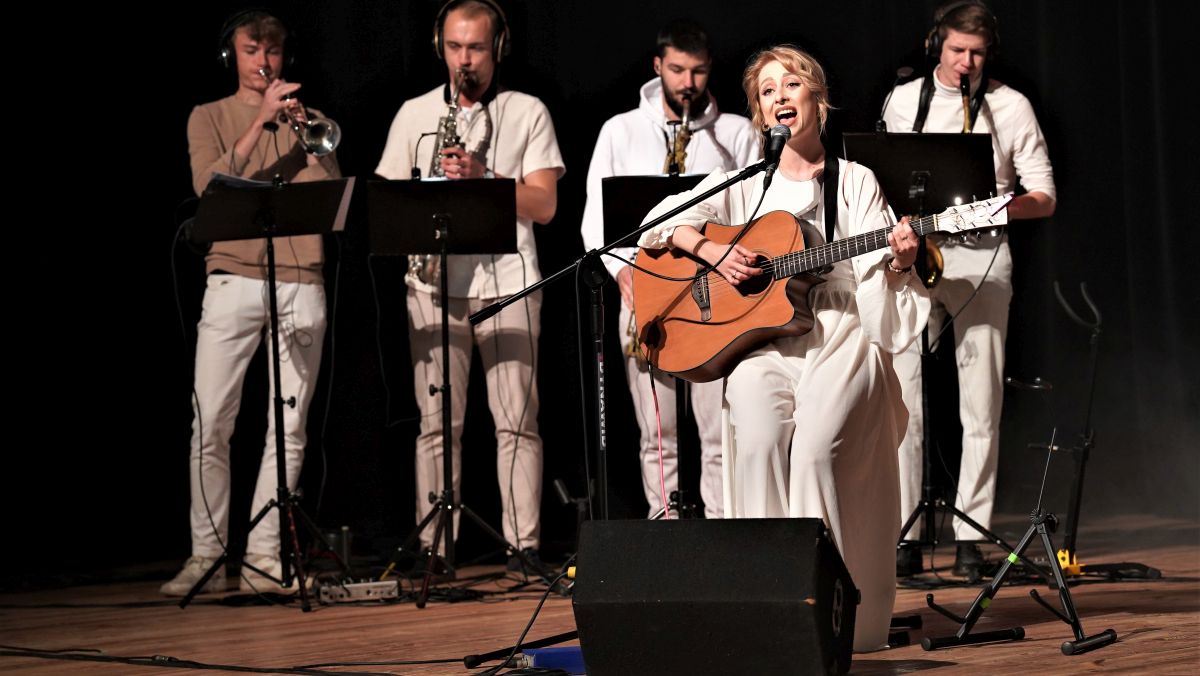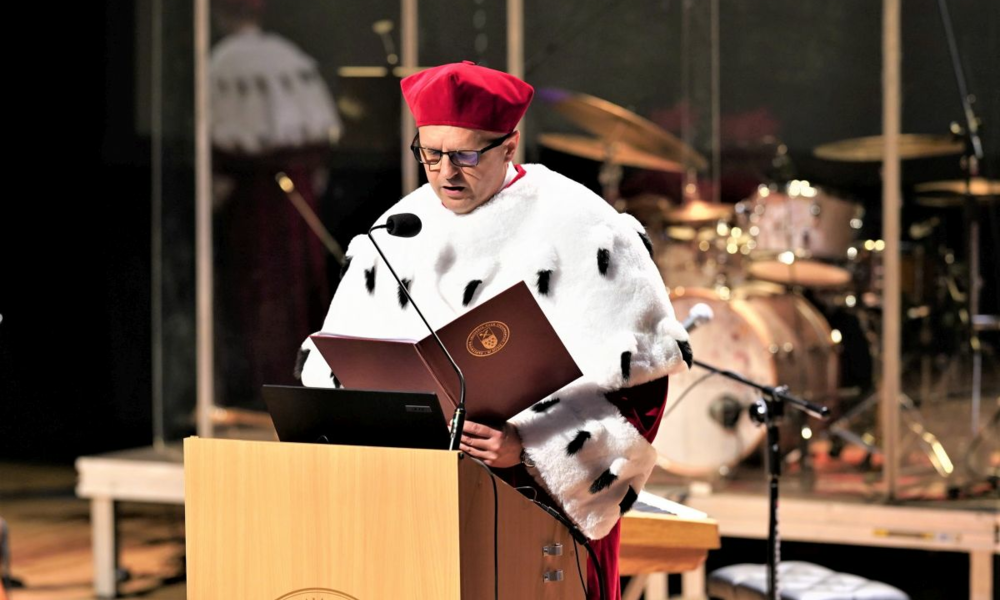International Cooperation Office
- 2024-10-11 10:20:00
- News
UAS in Nysa Inauguration of the new academic year 2024/2025 October 11, 2024
On October 11, 2024, a ceremonial inauguration of the new academic year 2024/2025 took place at the Nysa Cultural Center. This year, due to the end of the term of the current Rector, Przemysław Malinowski, prof. ucz., the rector’s insignia were handed over to the new Rector, dr.inż. Mariusz Kołosowski, prof. ucz., who began his term on September 1.
According to the academic tradition, after the procession of the ceremonial banner and the singing of the Polish national anthem, His Magnificence the Rector welcomed the invited guests, university staff, and students. The ceremony was honored by members of the Polish parliament, representatives of the Opole region authorities, local government representatives, as well as representatives of higher education institutions from Opole and Lower and Upper Silesia. Directors and presidents of socio-cultural institutions, organizations, and companies also attended the ceremony.
Former Rector leaving his post, dr.inż. Przemysław Malinowski, prof. ucz., in his speech summarized the past 8 years of the university's activities, emphasizing the university's unique way of functioning and its cooperation with the socio-economic and international environment. He highlighted completed projects, successes, and development plans, stressing the slogan: "Nysa’s university is a place for people from all over the world, and the whole world is open to our staff and students!" A new challenge that the University Senate set for itself, at the Rector’s proposal, is the use of artificial intelligence in scientific and professional practice across all study programs.
The new Rector, His Magnificence dr. inż. Mariusz Kołosowski, prof. ucz., began his inaugural speech by thanking all university staff, their families, and students who actively participated in securing the university's property from the flood and helping with reducing its consequences. This quick response helped restore relative stability and allowed the academic year to begin on time in October. The Rector also expressed gratitude for all forms of external support, including the Ministry of Science, which appointed a team to monitor the situation at universities affected by the flood, as well as the Rectors of neighboring universities, the Charity of the University of Economics in Poznań (Fundacja Uniwersytetu Ekonomicznego w Poznaniu), and many companies and individuals for their help in providing equipment that was valuable in the recovery process.
His Magnificence, The Rector also pointed out new master's degree programs in English and German Philology, where students will be able to specialize in translation studies, responding to the growing demand for qualified translators in the job market. Master's programs were also launched for the Computer Science and Administration programs, which attracted significant interest.
In the new academic year, the university welcomed over 1000 new students, including 30 international students who came to Nysa as part of the Erasmus+ Program. University of Applied Science in Nysa is hosting students from countries such as Germany, Spain, Turkey, Portugal, Azerbaijan, and Ukraine, creating an inspiring environment for intercultural exchange and international experiences. Moreover, the university is hosting a Fulbright Program scholar for another consecutive year, which significantly enhances the attractiveness and quality of the English Philology program.
The inaugural lecture titled "Song Interpretation: What Did the Author Mean?" was delivered by prof. Inga Lewandowska, a lecturer at the Jazz Department of our university. This special lecture was accompanied by the premiere of the debut album of students and alumni from the Faculty of Jazz. The ceremony was further enriched by a performance by the Faculty of Jazz Choir, conducted by dr Mariusz Drożdżal.
The 2024/2025 academic year begins for the Nysa Alma Mater with 2100 students enrolled across 25 fields of study.
Galeria
